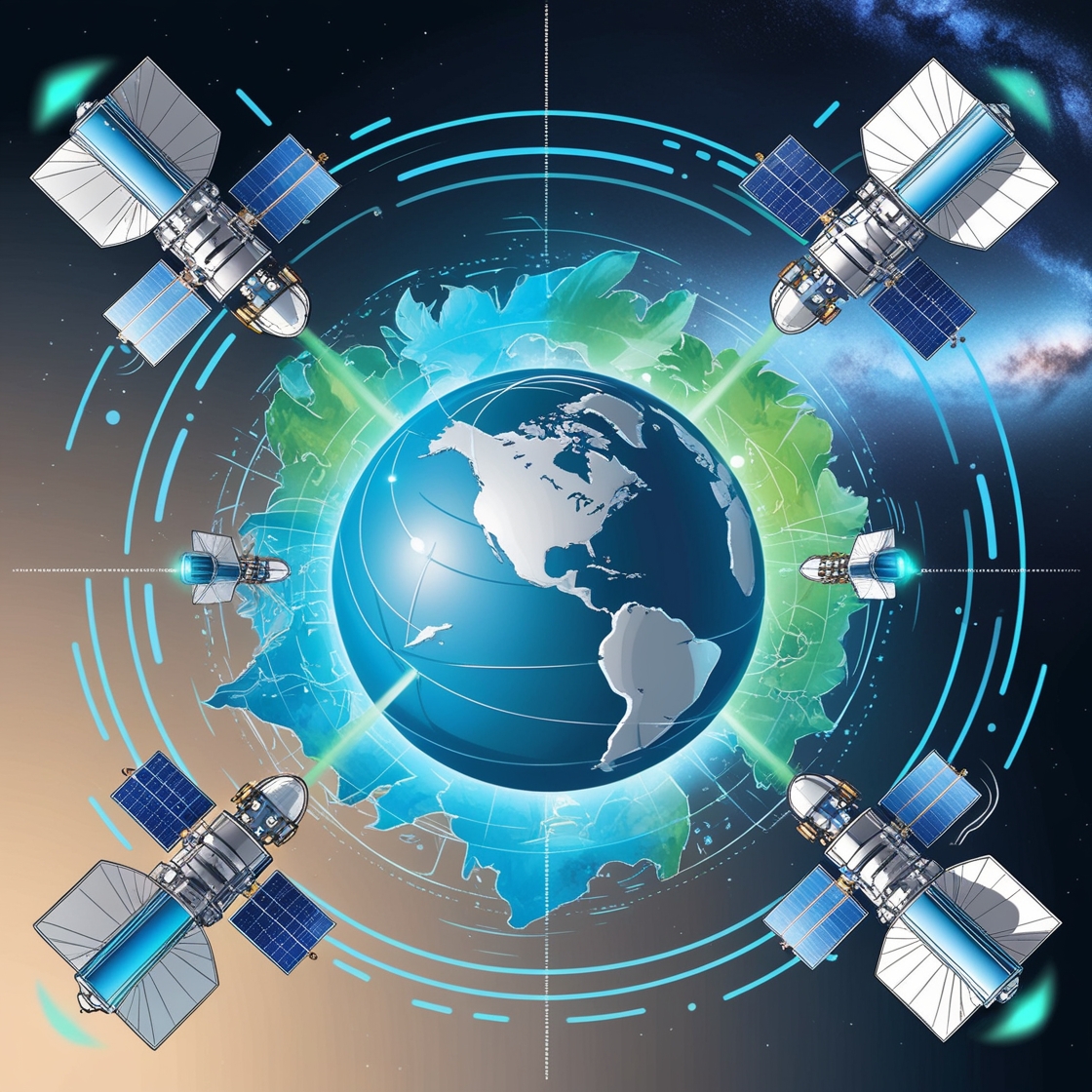Introduction to Space Technology
Space technology has come a long way since the first satellite, Sputnik, was launched in 1957. Today, it’s not just about venturing into the cosmos; it’s about transforming life on Earth. Whether you’re checking the weather, using GPS, or streaming a movie, space technology plays a pivotal role.
The Evolution of Space Technology
From early rockets to sophisticated satellites and Mars rovers, space tech has evolved rapidly. It has moved beyond mere exploration, embedding itself into critical aspects of global infrastructure.
How Space Tech Shapes Our Daily Lives
Imagine a day without GPS or weather updates. Space technology underpins these services, ensuring seamless communication, navigation, and even banking transactions. It’s not just rocket science; it’s life-changing.
Satellites: Guardians of the Sky
Understanding Satellite Technology
Satellites orbit the Earth, acting as eyes and ears in the sky. They gather data, relay communications, and even monitor natural disasters.
Types of Satellites and Their Roles
Communication Satellites
These are the backbone of global connectivity, enabling internet, television broadcasts, and phone networks.
Weather Satellites
Weather forecasting depends heavily on satellites, which track storms, predict rainfall, and monitor global weather patterns.
GPS Satellites
Navigation, logistics, and even fitness apps rely on GPS satellites to provide accurate location data.
The Economic Influence of Satellites
Satellites drive industries like telecommunications, agriculture, and transportation. The satellite industry generates billions annually, fueling global economies.
Communication Revolution Through Space Tech
Bridging the Connectivity Gap
Satellites extend internet access to remote areas, bridging the digital divide. Projects like Starlink aim to make internet access universal.
The Role of Satellites in 5G Deployment
Satellites complement ground infrastructure for 5G, ensuring robust, global coverage even in underserved areas.
Disaster Response and Communication
During natural disasters, terrestrial communication lines fail. Satellites step in, enabling rescue operations and emergency responses.
Exploration and Its Ripple Effects
Space Exploration Milestones
Historic missions like Apollo 11 paved the way for modern exploration. Mars rovers and space telescopes continue to unlock cosmic mysteries.
Technological Spin-offs from Space Research
From memory foam to medical imaging, many everyday technologies owe their origins to space research.
Space Tourism and Its Emerging Influence
With companies like SpaceX and Blue Origin, space tourism is no longer a dream. This burgeoning industry could redefine how we view space travel.
Environmental Impact and Sustainability
Monitoring Climate Change with Satellites
Satellites track deforestation, melting ice caps, and carbon emissions, providing critical data to combat climate change.
Space Debris: A Growing Concern
The accumulation of space debris poses risks to satellites and future missions. Sustainable practices are essential for long-term space exploration.
The Future of Space Tech
Advances in Satellite Technology
Miniaturized satellites and AI-powered systems promise more efficient, cost-effective solutions for various industries.
Interplanetary Communication
With missions to Mars and beyond, developing robust interplanetary communication networks is a top priority.
Collaborative Global Efforts in Space Research
International collaborations like the ISS demonstrate the power of unity in advancing space technology for the benefit of humanity.
Conclusion
Space technology has revolutionized life on Earth, touching every facet of society. From satellites enabling communication to exploration inspiring innovation, its impact is immeasurable. As we look to the stars, we must also focus on sustainable practices to ensure the continued benefits of space tech for generations to come.
FAQs
1. What is the most significant impact of satellites on daily life?
Satellites provide essential services like GPS navigation, internet connectivity, and weather forecasting, making them indispensable in modern life.
2. How do satellites contribute to disaster management?
They enable real-time tracking of natural disasters, facilitating quick emergency responses and saving lives.
3. What are the environmental concerns related to space technology?
Space debris and the energy consumption of launches pose significant environmental challenges that need to be addressed.
4. How has space tourism influenced space exploration?
Space tourism has boosted interest and investment in space tech, paving the way for innovative solutions and expanded exploration missions.
5. What advancements can we expect in space technology over the next decade?
Expect developments in AI-driven satellites, interplanetary missions, and enhanced global connectivity through advanced satellite systems.
